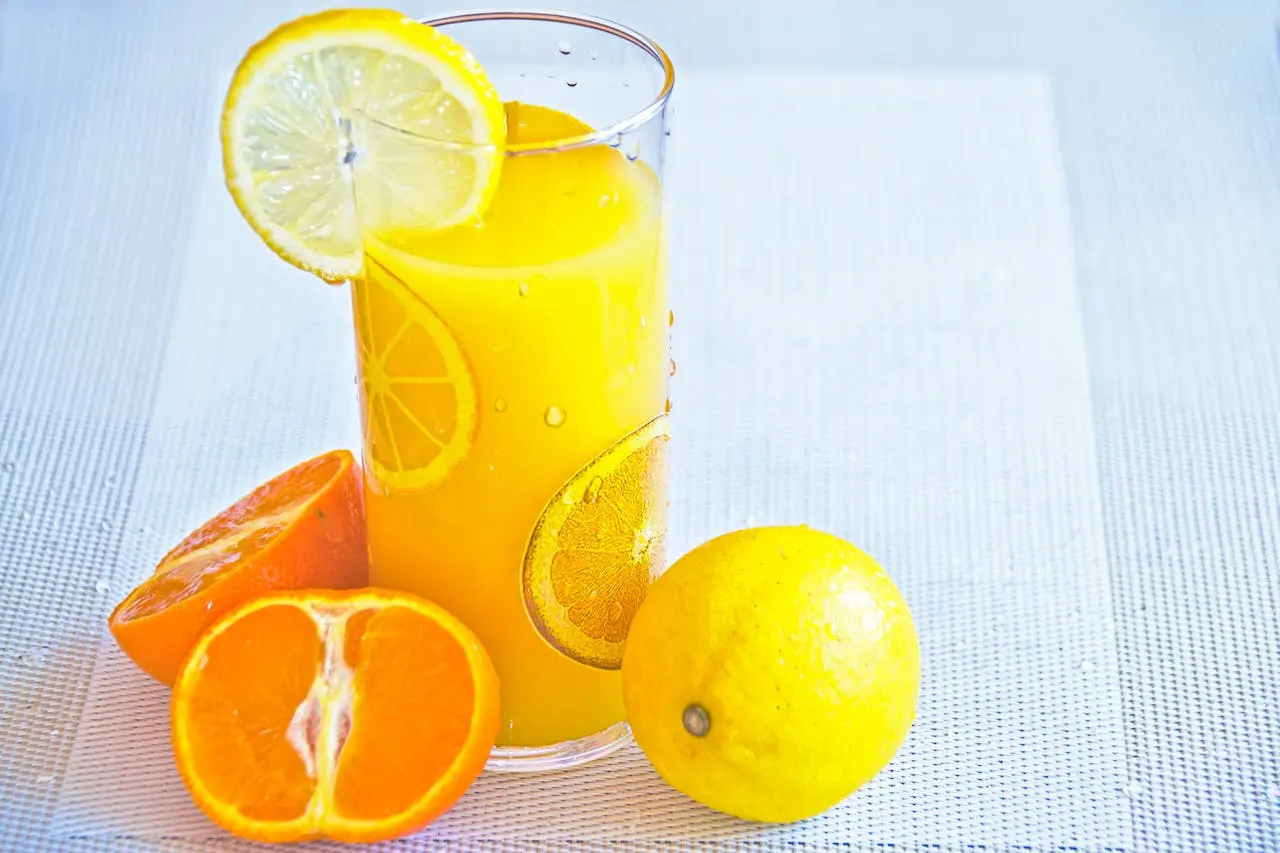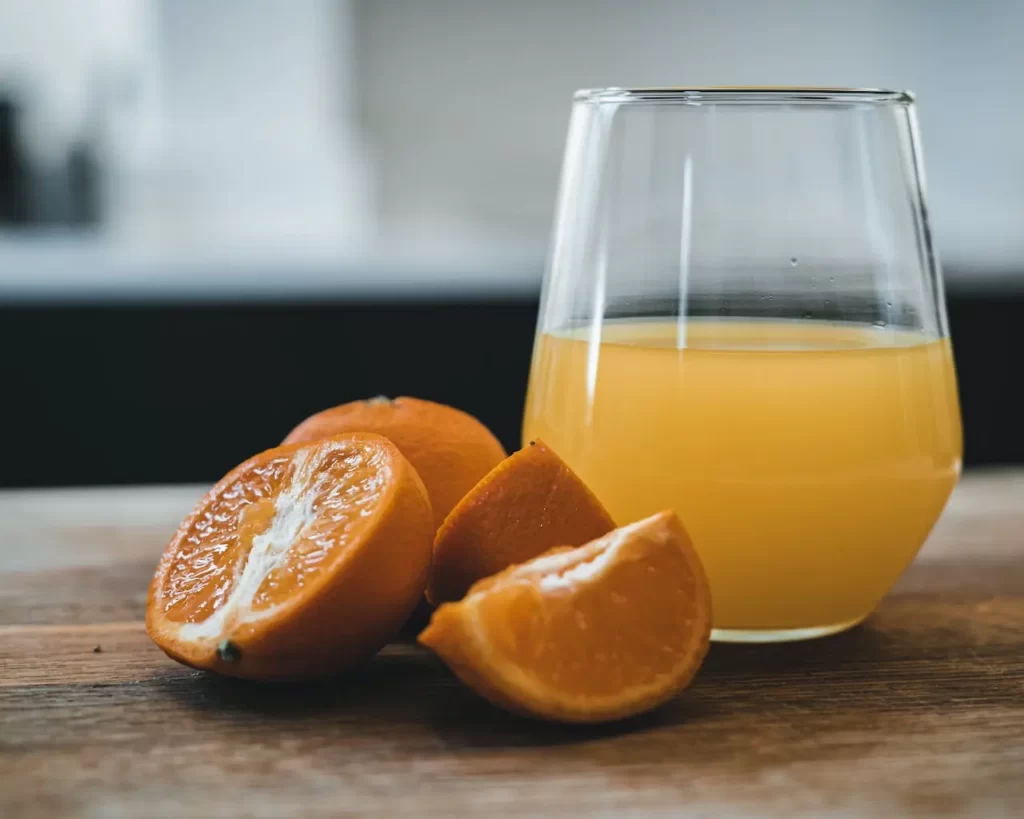Why Does Orange Juice taste bad after brushing teeth?

Orange juice is a popular beverage made from the extraction and pressing of oranges. It is a rich source of vitamin C and is known for its refreshing and citrusy flavor. But orange juice tastes bad after brushing teeth due to Citric Acid in Orange Juice
Some varieties of orange juice may be fortified with additional nutrients such as calcium and vitamin D. Beyond being a tasty beverage, orange juice has health benefits due to its high vitamin C content, which is essential for the immune system, skin health, and overall well-being.
However, it’s important to consume it in moderation, as it can also be high in natural sugars. Have you ever experienced the strange and unpleasant taste that follows a sip of orange juice after brushing your teeth?
Why Does Orange Juice taste bad after brushing your teeth?
The phenomenon of orange juice tasting bad after brushing teeth can be attributed to the interaction between toothpaste and the natural compounds in orange juice. This chemical alteration in taste perception sets the stage for the clash of flavors when consuming orange juice.
Here are the key reasons why this clash of flavors occurs:
1. Sodium Lauryl Sulfate in Toothpaste
Many toothpaste formulations contain a foaming agent known as sodium lauryl sulfate. SLS serves to create the foaming action that helps distribute toothpaste evenly in the mouth.
However, SLS also has the side effect of temporarily inhibiting the taste receptors responsible for detecting sweetness on the tongue. Simultaneously, it heightens the perception of bitterness.
This alteration in taste perception can result in an unpleasant flavor when consuming sweet and acidic foods like orange juice after brushing.
2. Citric Acid in Orange Juice
Oranges and their juice are naturally rich in citric acid, which contributes to their distinctive tangy taste. When you consume acidic foods, they can interact with the calcium ions present in saliva and on the surface of teeth.

This interaction may lead to a sour or bitter taste, especially if the pH balance in the mouth is affected by toothpaste.
3. Altered Taste Perception
The combined effects of SLS temporarily suppressing sweetness receptors and enhancing bitterness, along with the natural acidity of orange juice, create a unique taste sensation that many find unappealing.
To mitigate this aftertaste, individuals can consider using toothpaste without SLS or choosing toothpaste with lower concentrations of this foaming agent.
Additionally, adjusting the timing of consuming orange juice before brushing teeth can help minimize the impact of altered taste perceptions.
What Steps can be taken if Orange Juice tastes bad after brushing Teeth?
To avoid the unpleasant taste that often accompanies drinking orange juice after brushing your teeth, consider the following tips:
1. Choose SLS Free Toothpaste
Select a toothpaste that does not contain sodium lauryl sulfate. SLS is the foaming agent responsible for altering taste receptors on the tongue.
Many brands offer SLS-free options, which can help maintain a more natural taste when consuming orange juice.
2. Use Less Toothpaste
If switching to an SLS-free toothpaste is not an option, consider using a smaller amount of toothpaste.
Using less toothpaste may minimize the impact of SLS on taste receptors, reducing the likelihood of a pronounced aftertaste.
3. Opt for Mild or Unflavored Toothpaste
Some toothpaste varieties, especially those designed for sensitive teeth, come in mild or unflavored options.
Choosing a toothpaste with a milder flavor profile can decrease the intensity of the clash between the toothpaste and orange juice.
4. Rinse Thoroughly
After brushing your teeth, rinse your mouth thoroughly with water. This can help remove residual toothpaste and its taste-altering compounds, reducing the likelihood of a lingering aftertaste when you consume orange juice.
Read More: What To Do if You Drink Spoiled Orange Juice?
5. Wait Before Drinking Orange Juice
If possible, delay drinking orange juice until some time has passed after brushing your teeth. This allows the altered taste perceptions caused by toothpaste to subside, reducing the impact on the flavor of the juice.
6. Brush Teeth at Different Time
Consider adjusting your daily routine by brushing your teeth at a different time, such as before or after breakfast rather than right before drinking orange juice. This can help separate the activities and minimize the interference of toothpaste with the taste of the juice.
7. Maintain Oral Hygiene
While adjusting your routine, ensure that you maintain proper oral hygiene. Brushing your teeth regularly is crucial for dental health, so finding a compromise that works for you is essential.
By incorporating these tips into your oral care routine, you can minimize the clash of flavors and enjoy your morning orange juice without the unwelcome aftertaste. Experimenting with different toothpaste options and timing can help you find a solution that suits your preferences and maintains your dental health.
Frequently Asked Question
Why Does my Orange Juice taste carbonated?
If your orange juice tastes carbonated, it could be due to natural fermentation from exposure to bacteria or yeast, a deliberate carbonation process during manufacturing, spoilage, or fermentation of added ingredients.
Check for signs of spoilage, such as an off odor or unusual cloudiness, and consider the expiration date to ensure the juice is safe to consume.
Conclusion
After brushing your teeth, orange juice can taste weird, and it’s all because of the stuff in your toothpaste and the natural tanginess of the juice. In your toothpaste, there’s a thing called sodium lauryl sulfate. This SLS messes with your taste buds, making sweet things less sweet and bitter things more bitter.
When you mix the SLS from toothpaste with the citric acid from orange juice, it’s like a taste clash. The sweetness gets muffled, and the bitterness and tanginess get cranked up, creating a flavor combo that’s not everyone’s favorite.
But fear not! You can make things better. You might try using a toothpaste without SLS or one with less of it. You could also rinse your mouth well after brushing or even switch up when you brush your teeth in the morning. Experimenting with these simple changes can help you enjoy your orange juice without the strange aftertaste. Cheers to tasty mornings!